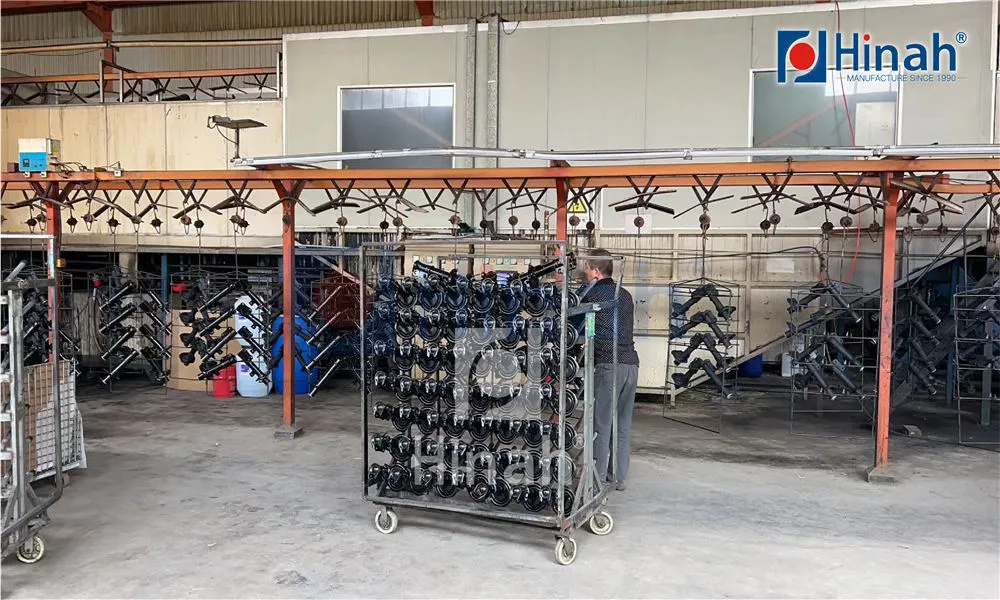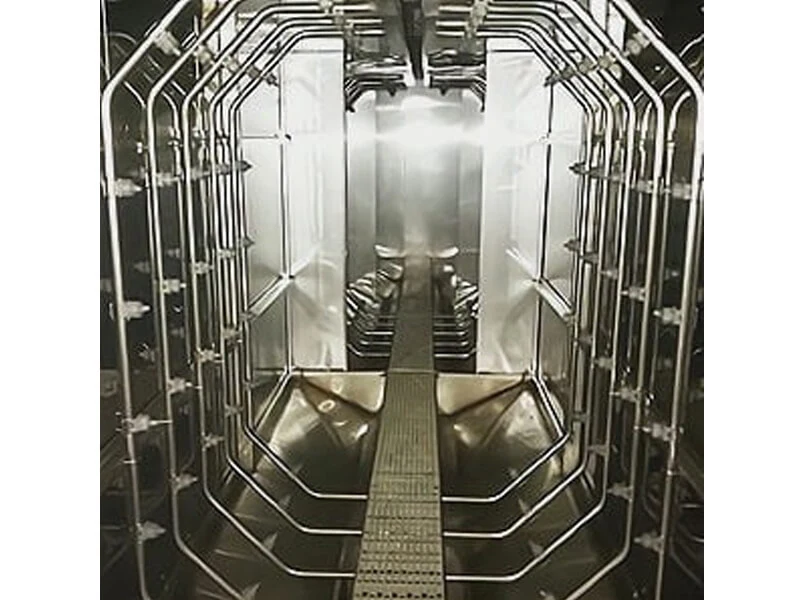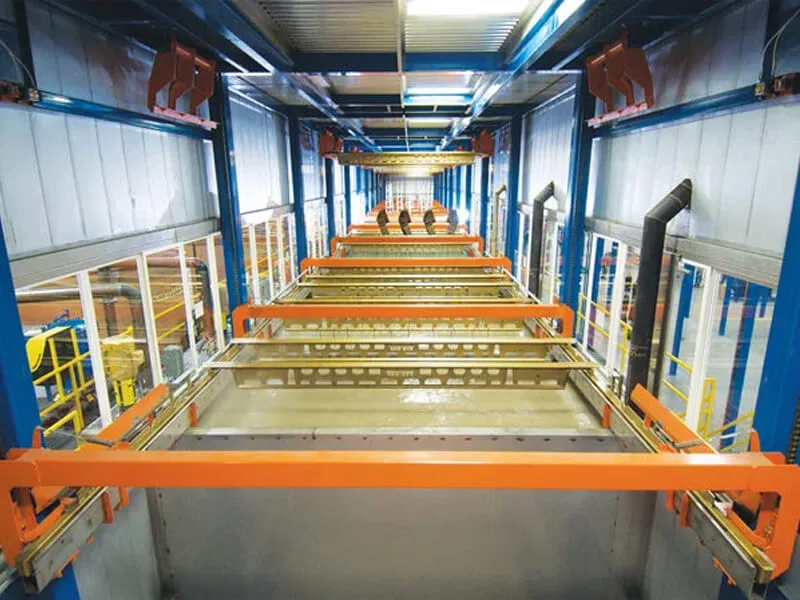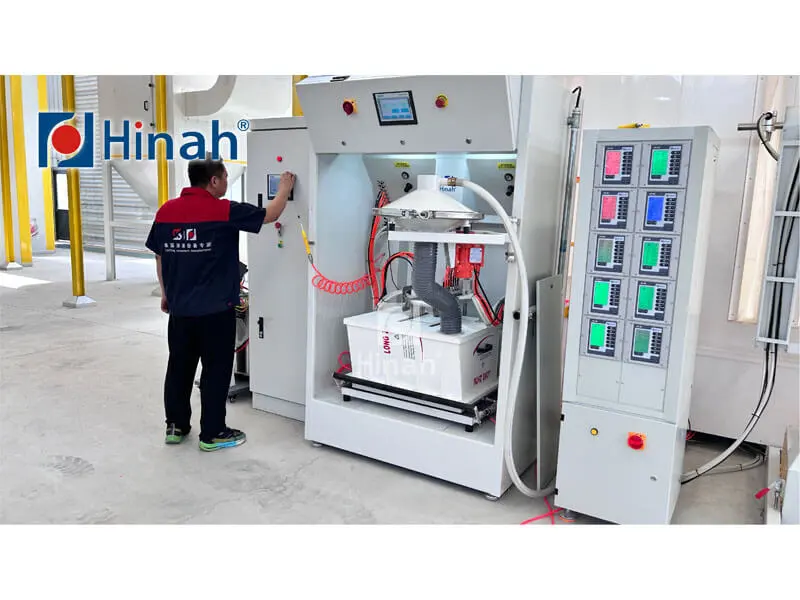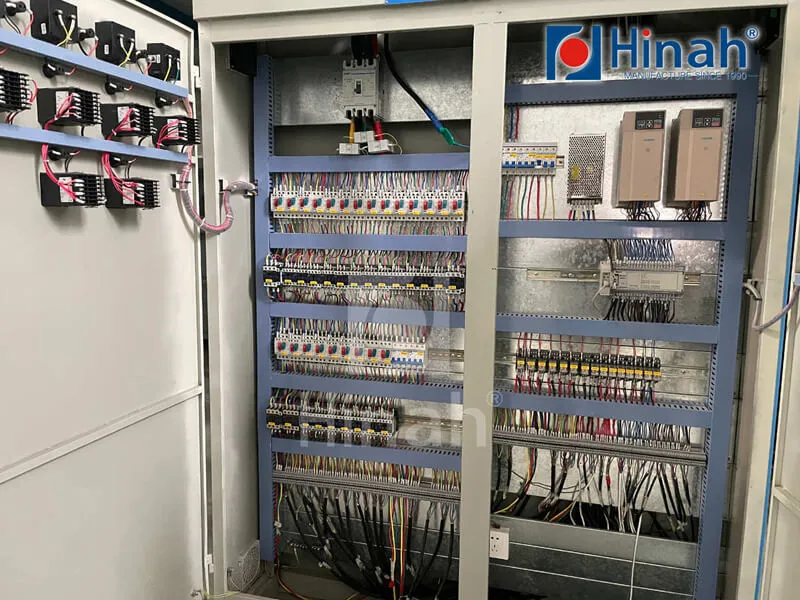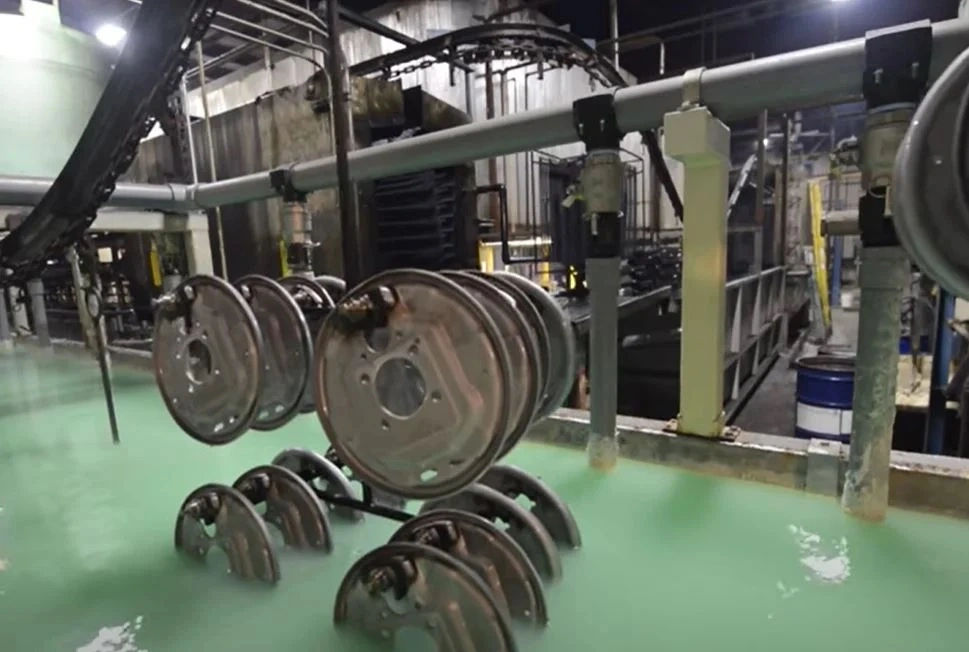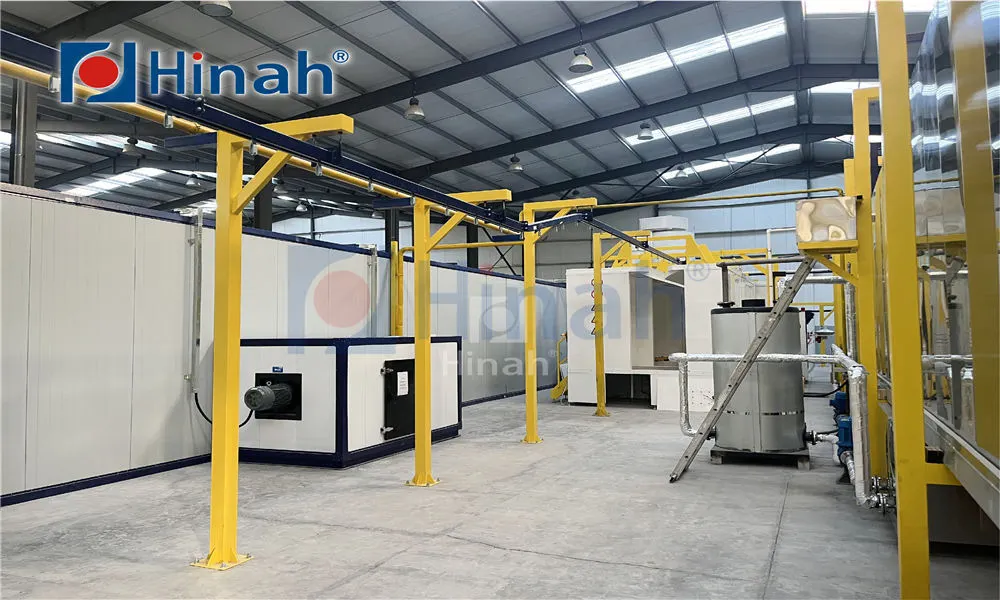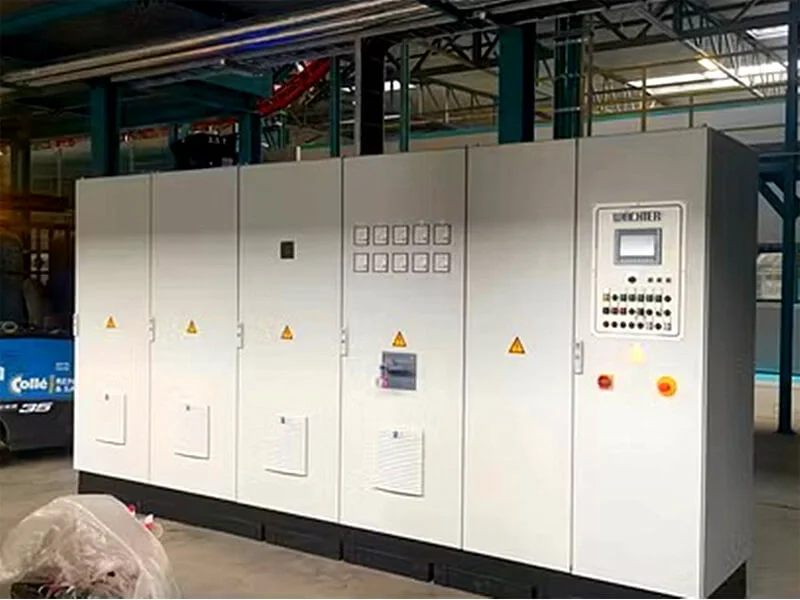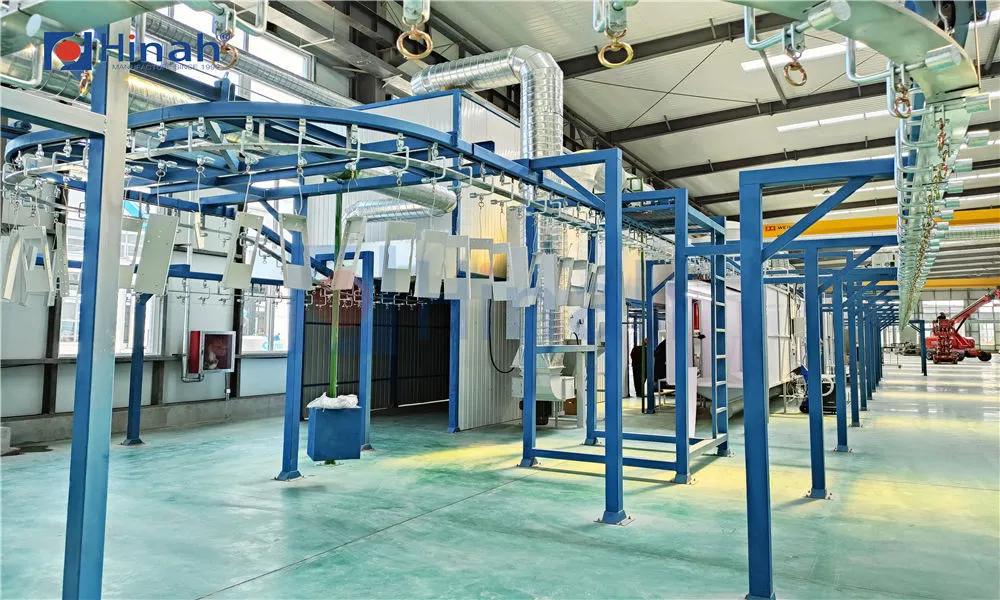Want to nail powder coating? You gotta know your powder coating equipment and safety inside out. Let's break down these essentials.
1. The Core Trio
Plain and simple - you can't do powder coating without these three:
Spray Gun: Your powder applicator. Comes in manual versions or auto setups for production lines. Electrostatic charging makes powder stick evenly.
Spray Booth: Your enclosed workspace. Contains the mess (reduces overspray), ensures consistent results, and recovers unused powder. Bonus savings! A good booth needs quick color changes, easy cleaning, and solid recovery systems.
Curing Oven: Where the magic happens. Parts get baked here - heat melts the powder into that tough, smooth finish (time/temp depends on your powder).
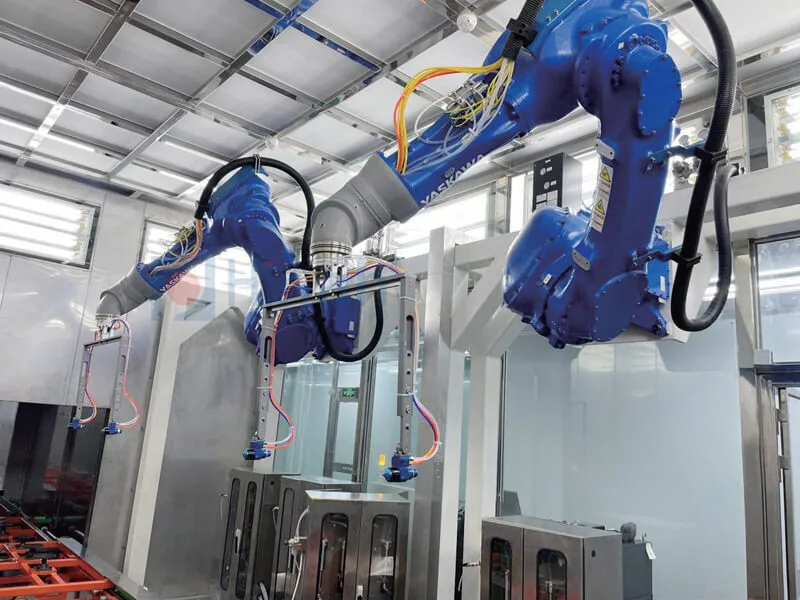
2. Upgrading Your Setup
Beyond basics, consider these depending on your workload, parts, and budget:
Pre-Treatment Gear: Critical prep step! Get surfaces squeaky clean before coating.
Blasting Equipment: Blasts off rust/old paint and creates texture for better adhesion.
Cleaning Stations: Chemical baths (degreasing, acid wash, phosphating) remove gunk and prep metal.
Drying Ovens: Parts must be bone-dry after washing before powder hits them.
Powder Delivery:
Hoppers/Feed Centers: Powder storage connected to guns. Cleanable design is key for fast color changes.
Automation Gear:
Auto Spray Systems: Replace manual spraying - more uniform, efficient, and saves labor.
Robotic Systems: Perfect for complex shapes or high volume. Robots handle guns with precision.
Gun Movers: Program guns to follow paths for even coverage, especially on tricky curves.
3. Picking Your Spray Booth
Booths aren't one-size-fits-all:
Fast Color Change Booths: Built for shops switching colors constantly. Easy-clean surfaces and recovery systems (like AeroDecks™) prevent cross-contamination.
Single-Color/Cartridge Booths: Most efficient for dedicated colors. Cartridge systems recover >99% powder. Low air resistance = energy savings.
Specialty Booths: Designed for demanding jobs like enamel coating - max efficiency, minimal waste, and heavy-duty construction. Special designs also handle critical color needs.
4. SAFETY FIRST! NON-NEGOTIABLE!
Powder (especially uncured!) and the process itself have risks. PPE is MANDATORY. Here's why:
Health Hazards:
Inhalation: Fine dust = lung irritation or asthma. WATCH OUT for powders with TMA, TGIC, or lead chromates! ALWAYS check the SDS (Safety Data Sheet) - note H302/H317 or R22/R43 codes.
Skin Contact: Can cause rashes or allergies.
Other Risks: Machine injuries, chemical splashes (pre-treatment!), and even dust flash fires.
Safety Must-Dos (Risk Control):
Use Booths Right: Ensure STRONG ventilation. Powder on the floor? Your airflow sucks! Keep doors SHUT while spraying.
Automate Spraying: Cut down on manual work where possible.
Control Your Gun: Dial in air pressure/powder flow - don't over-spray.
Clean Smart: NO compressed air inside booths (kicks up dust)! Use scrapers or vacuum tools. Never spray towards people.
WEAR YOUR PPE: Match gear to the job:
PPE Checklist (Task-Based):
Always Wear:
Safety glasses/sealed goggles (dust & chemical splash protection)
Chemical-resistant gloves
Full coveralls (e.g., MicroGuard MP® for dust/light splash - upgrade for chemicals)
Manual Spraying/Blasting:
AIR-SUPPLIED RESPIRATOR or tight-fitting full-face respirator (ESSENTIAL!)
Full face shield
Flame-resistant (FR) anti-static suit (if flammable powder/explosion risk)
Manual Cleaning (Chemical Pre-Treatment):
Chemical suit (e.g., ChemSplash® 1 or 2)
Full face shield
Air-supplied respirator or gas mask (with cartridges for vapors/dust)
Around Automation:
Hard hat (moving parts/overhead hazards)
(Plus all the "Always Wear" gear!)
Bottom Line:
Starter Setup: Spray Gun + Spray Booth + Curing Oven + Air Compressor (filtered, 5-10 PSI) + Basic Pre-Treatment (sandpaper/degreaser) + FULL BASIC PPE (Gloves, Goggles, Respirator, Coveralls).
Pro/Production Setup: Add pre-treatment lines (blasting, cleaning, drying), automation (auto guns, robots), advanced recovery systems, and UPGRADED TASK-SPECIFIC PPE.
SAFETY RULES: No matter your scale, running powder coating equipment demands strict PPE, following safety rules (like OSHA 1910.107), and knowing your powder's SDS. Protecting yourself isn't optional - it's an absolute must!


